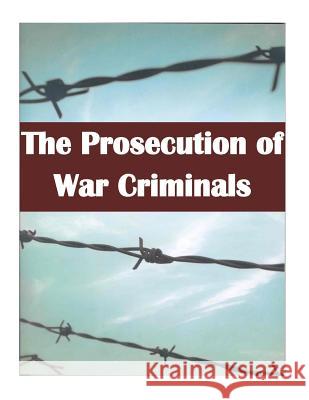The Prosecution of War Criminals » książka
The Prosecution of War Criminals
ISBN-13: 9781511684415 / Angielski / Miękka / 2015 / 130 str.
This study examines the role that the various systems of justice played in the ultimate reconciliation of the belligerents of World War II. From this standard, modern jurisprudential trends for the prosecution of war criminals is evaluated. Section II provides an overview of the goals of the traditional American justice system as compared to those of international and national systems of justice used to prosecute violators of the laws of war and or other crimes susceptible to post conflict prosecution by the international community. Section III analyzes the goals, procedures and effectiveness of the international military tribunals created for the prosecution of war criminals in the wake of World War II. Section IV provides a similar analysis for the use of national courts and commissions to try those who violate the laws of war. Sections III and IV also includes a discussion of the effectiveness of the studied systems and highlight lessons learned from the experience. Section V focuses on the important goal of reconciliation as a key aspect that should be incorporated into any system of justice that is established after the cessation of hostilities. Based on this background, section VI proposes a system of justice for the prosecution for Iraqi war criminals apprehended after the liberation of Iraq. This proposal leverages the lessons of the past with the aim of developing a system of justice for war criminals that contributes to the prospects for a lasting peace and the reconciliation of the various domestic and international parties. This proposal is based upon a philosophy that any system of post-conflict justice for war criminals must serve the ultimate ends of peace and reconciliation. And though the process should include the punishment of the wrongdoer, the process used to achieve these ends must be carefully tailored to the situation. Further, efforts must be undertaken to establish legitimacy and transparency. Transparency serves to build confidence in the outcome, and, critically, to provide the local population with immediate insight into the rule of law in action.











